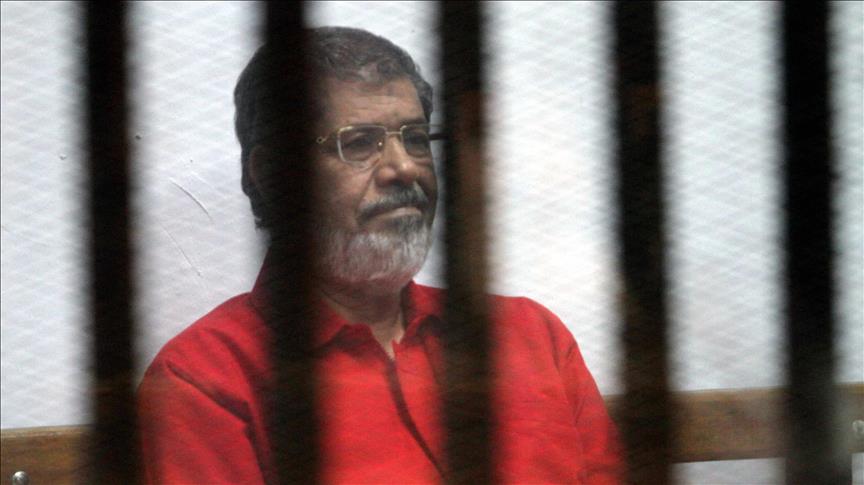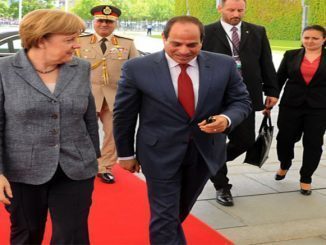
Talks held in the Congolese capital, Kinshasa, on March 4-5 did not achieve any progress or lead to an agreement on re-launching negotiations on the filling and operation of the Grand Ethiopian Renaissance Dam (GERD), says spokesperson of the Egyptian Ministry of Foreign Affairs Ahmed Hafez in a statement Tuesday.
The statement attributed the reason to Ethiopia’s rejection of the proposal put forward by Sudan and supported by Egypt. The proposal suggested the formation of an international quartet led by AU Chair the Democratic Republic of Congo to meditate between the three states. The quartet would include the African Union, the European Union, the United States, and the United Nations.
“Similarly, Ethiopia rejected in the meeting all proposals and alternatives brought forward by Egypt and supported by Sudan to develop the negotiation process in a way that empowers the [three] states and parties taking part in the negotiations as observers to actively get involved in the talks, participate in running the negotiations, and suggesting solutions to technical and legal issues,” the statement reads.
Ethiopia also rejected an Egyptian proposal put forward in the conclusion session of the ministerial meeting and supported by Sudan. The proposal aims for the resumption of negotiations chaired by the Congolese president and attended by observers in accordance to the current negotiation mechanism.
The press statement says, “that [proposal] undoubtedly proves the resilience and sense of responsibility embraced by Egypt and Sudan, and affirms their serious desire to reach an agreement on the Renaissance Dam. Nevertheless, Ethiopia had rejected that proposal, which incurred the meeting’s failure to achieve congruence on re-launching negotiations.”
The spokesperson of the Egyptian Foreign Ministry said that such stance unveils again the absence of the political willpower of Ethiopia to negotiate out of good will as well as its inclination towards procrastination by relying solely on a useless negotiation mechanism. “That approach is unfortunate but it cannot deceive the Egyptian negotiator who realizes it,” the statement reads.
“Egypt took part in Kinshasa negotiations in order to launch negotiations under the leadership of the Democratic Republic of Congo in alignment with a precise timeline to reach a fair, balanced, and legally binding agreement on the Renaissance Dam. However, the Ethiopian side was obstinate and refused returning to the negotiations pathway. That is an obstructing stance and will result in complicating the Renaissance Dam crisis and the rise of tensions in the region,” the statement asserts.
The statement highlighted that “the minister of foreign affairs stressed in the Kinshasa meetings Egypt’s appreciation for the effort deployed by Congolese President Felix Tshisekedi in that pathway. He also asserted Egypt’s readiness to help and support him in his endeavors targeting to resolve the Renaissance Dam issue in a way that preserves the interests of the three states and reinforces stability in the region.”
Egypt, Sudan chiefs of staff met in Khartoum
Amid the faltering talks between Egypt, Ethiopia, and Sudan on the Renaissance dam, the Egyptian Army Chief of Staff Mohamed Farid met on Monday with his Sudanese counterpart Mohamed Othman Al-Hussein and discussed security issues that concern the two countries, the Egyptian army said in a statement.
According to the statement the two army officials held the meeting on the sidelines of the conclusion of the joint air exercise, the “Nile Eagles 2,” which began on 31 March in Sudan.
The statement said the chiefs of staff of Egypt and Sudan have discussed military and security challenges as well as threats facing their countries and the military cooperation program between them during the coming period.
“The two sides have agreed on the importance of employing the experiences gained from training activities for the benefit of developing operational tasks,” the statement said.
The Nile Eagles 2 training was concluded with a display of the activities carried out by the Egyptian



